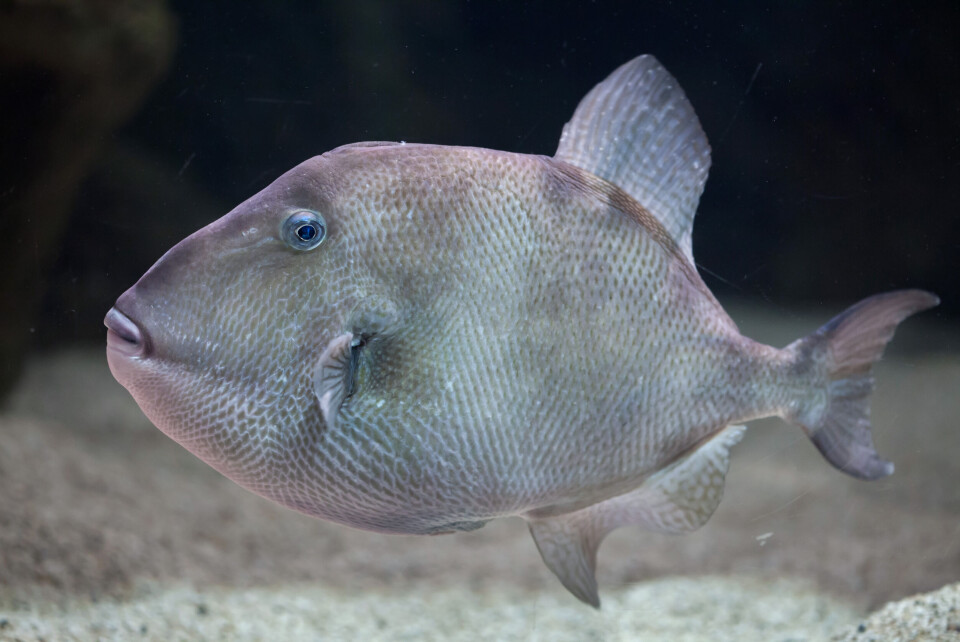-
Occitanie copper phase-out ramps up – how it will affect residents
There are some simple steps you can take to prepare for the switchoff
-
Which cars are stolen the most in France and why?
Perhaps surprisingly, the higher-end vehicles are not the most targeted
-
Several wolf sightings in centre of Frejus, Var
Rules have been relaxed around shooting wolves that threaten livestock
Which fish is biting (a few) holidaymakers on France’s southern coast?
The 22-toothed triggerfish is known to bite to defend its territory during the summer mating season and is being blamed but experts say it is probably not guilty

A man came out of his daily dip in the Mediterranean on the southern coast of France when he felt a painful pinch, and found an open wound on the back of his calf.
On the beach of Juan-les-Pins, near Antibes, a mysterious biting fish was on the loose.
After his wife posted the picture on Facebook, many others began sharing similar pictures from around the Mediterranean. Some were quick to blame the triggerfish, a species that is regularly accused of mischief at this time of year.
Do not believe the fish slander
The fish enters its mating season in summer, which makes it more defensive of its territory. In that time, it uses its 22 powerful teeth, designed to crush shellfish, to deter any would-be predators.
Even though triggerfish are known to inhabit the Mediterranean and sometimes bite beach-goers, it is rare for them to come to shallow waters. In fact, they usually live in reefs, at depths of at least 24 metres.
Pierres Gilles, an oceanographer at the Monaco Oceanographic Institute told France 3: “I’ve completed hundreds of dives and I’ve only seen triggerfish twice. There are many more types of fish that are likely to be guilty.”
Sea breams are a more common occurrence. Many species live in shallow waters when young, and are known to bite if they feel threatened. Due to their small size, their bites are not considered dangerous.
Like the triggerfish, none are venomous but medical care is still recommended to clean and disinfect the wound if you are bitten. Pierres Gilles and other experts also say that fish are more likely to bite people with varicose veins or scabs.
There is one species of venomous fish in the Mediterranean, the weever, which has been seen occasionally near beaches. If it bites, the spread of venom can be counteracted with very hot water (around 40C).
Like jellyfish stings, that is the one and only warm liquid you should use.
Related articles:
Watch: Commotion as shark spotted near beach in southern France
Large numbers of jellyfish spotted on beaches in southern France
Meet the American who searches for people’s lost jewellery in France
























